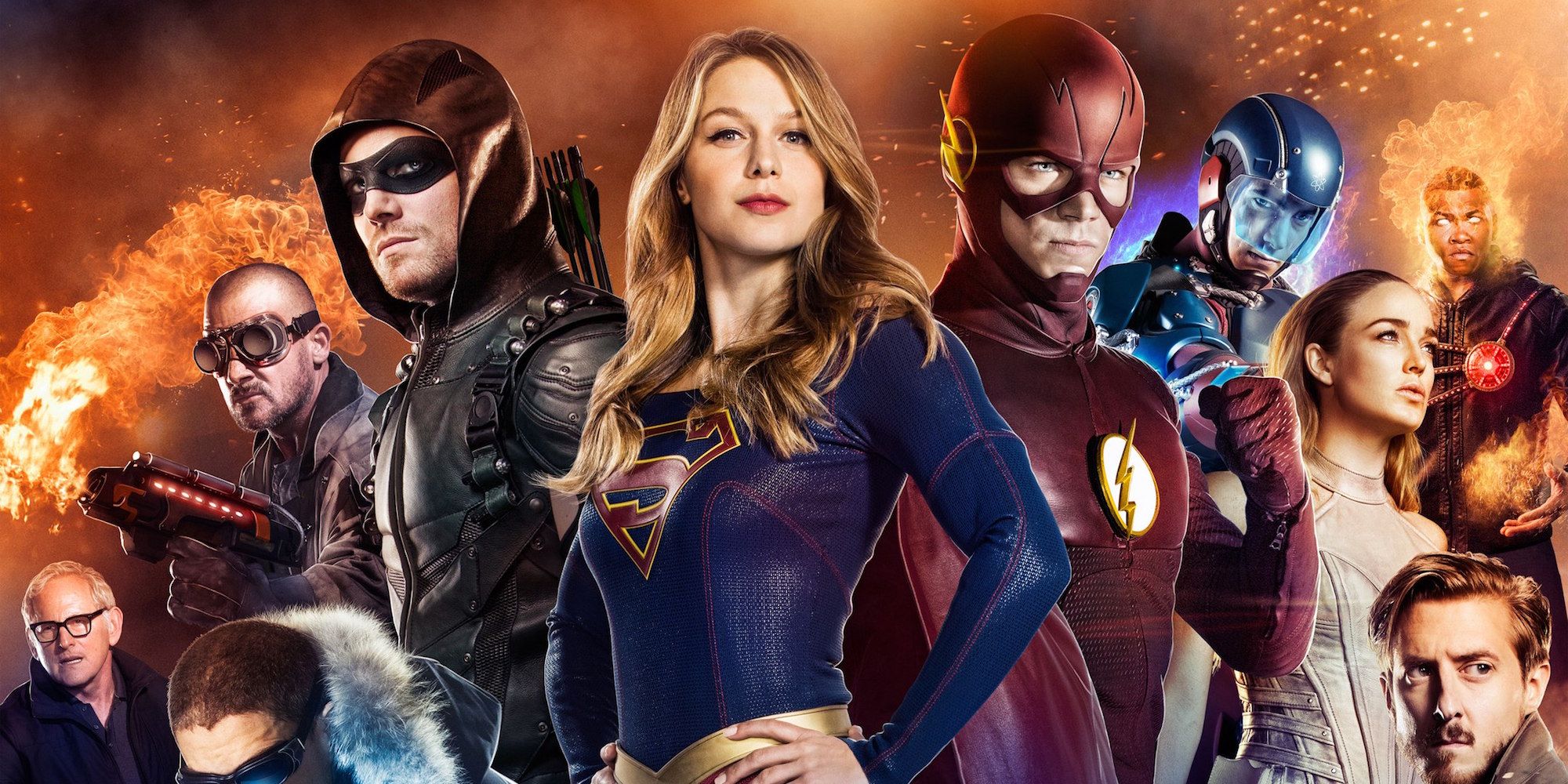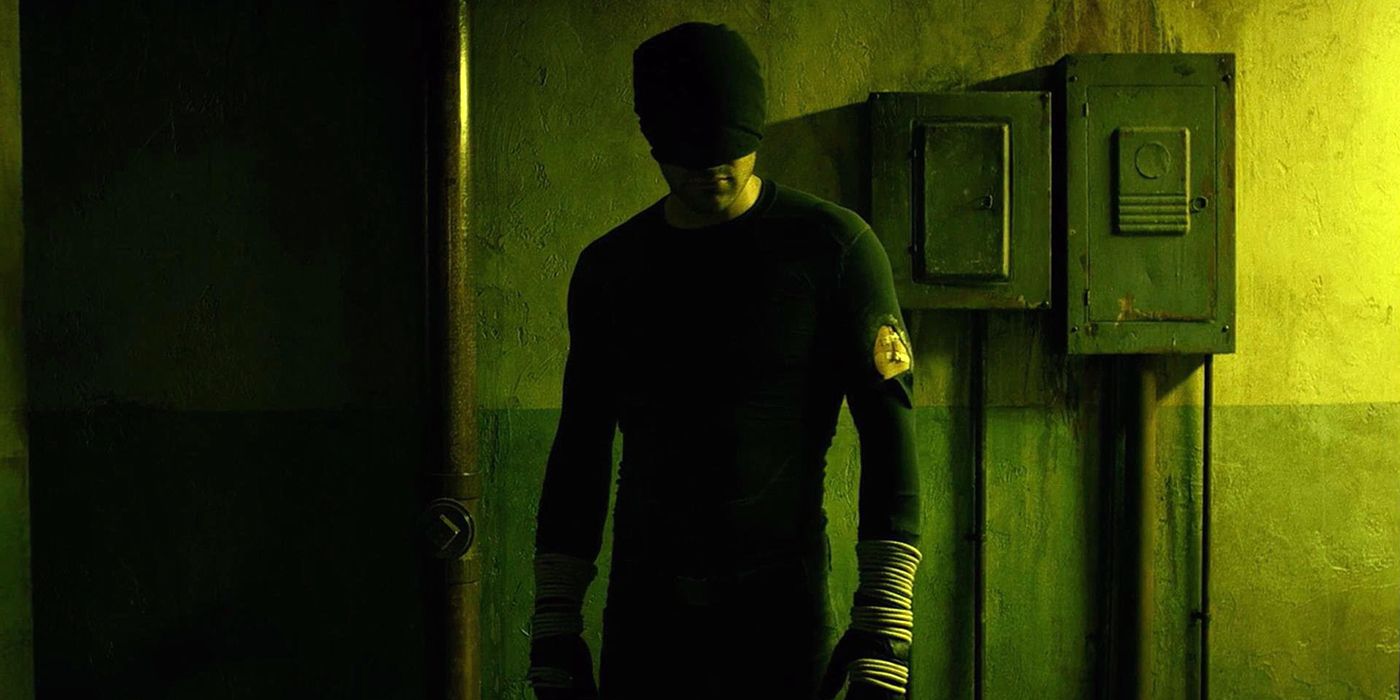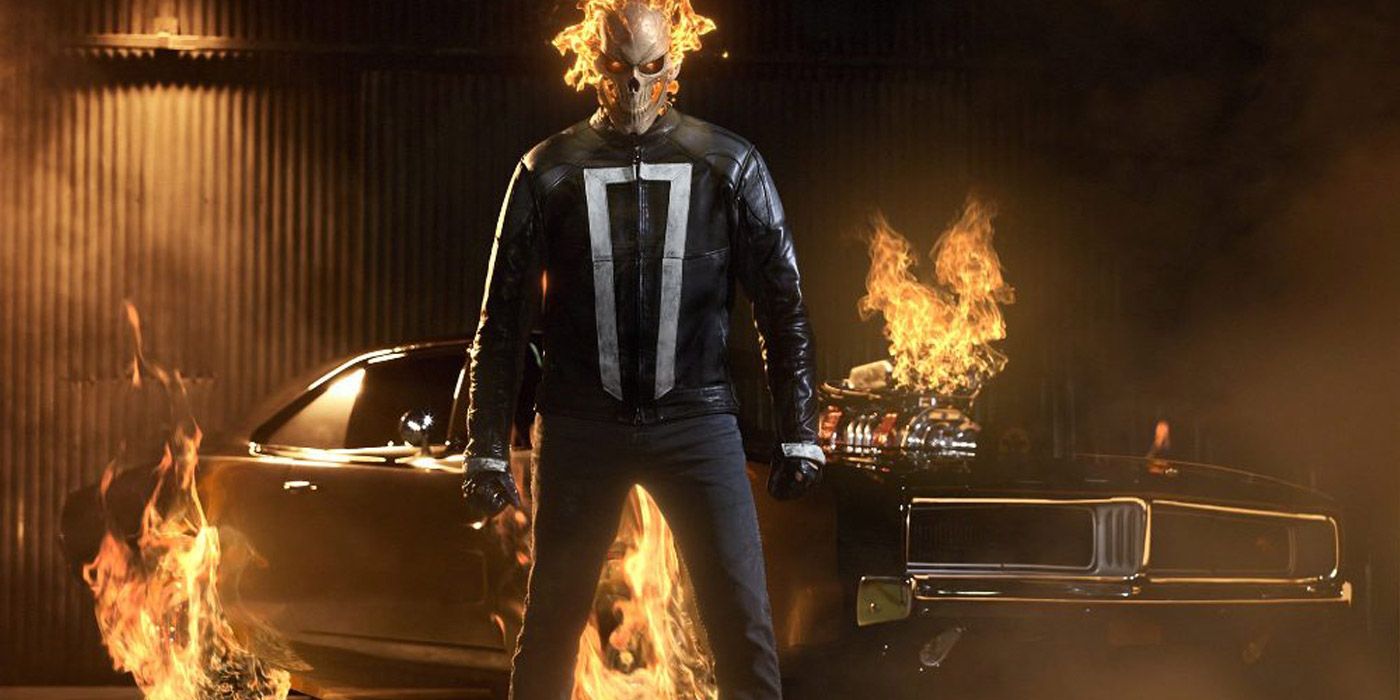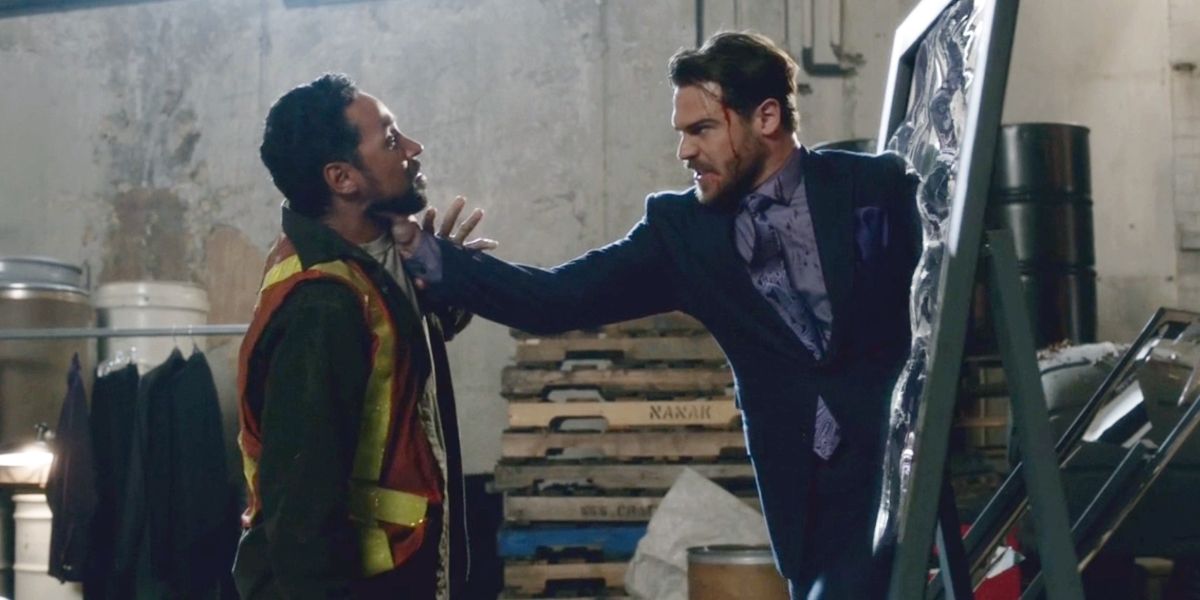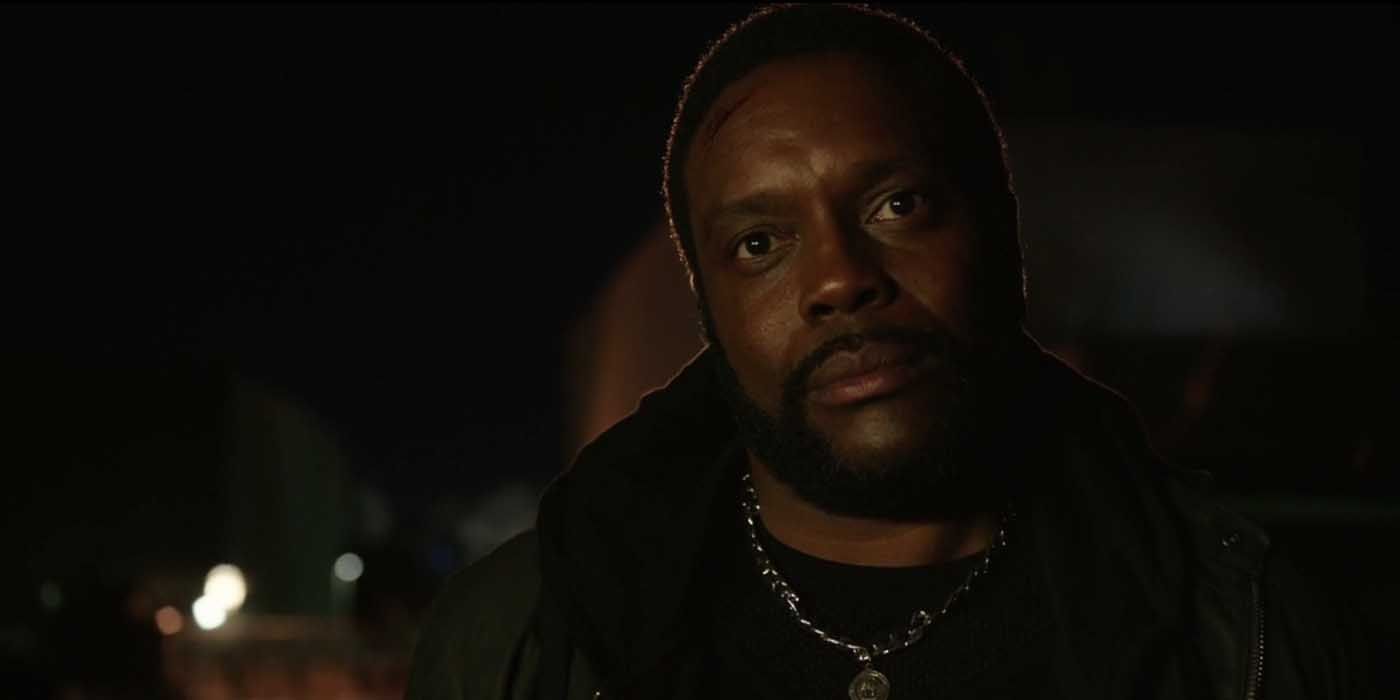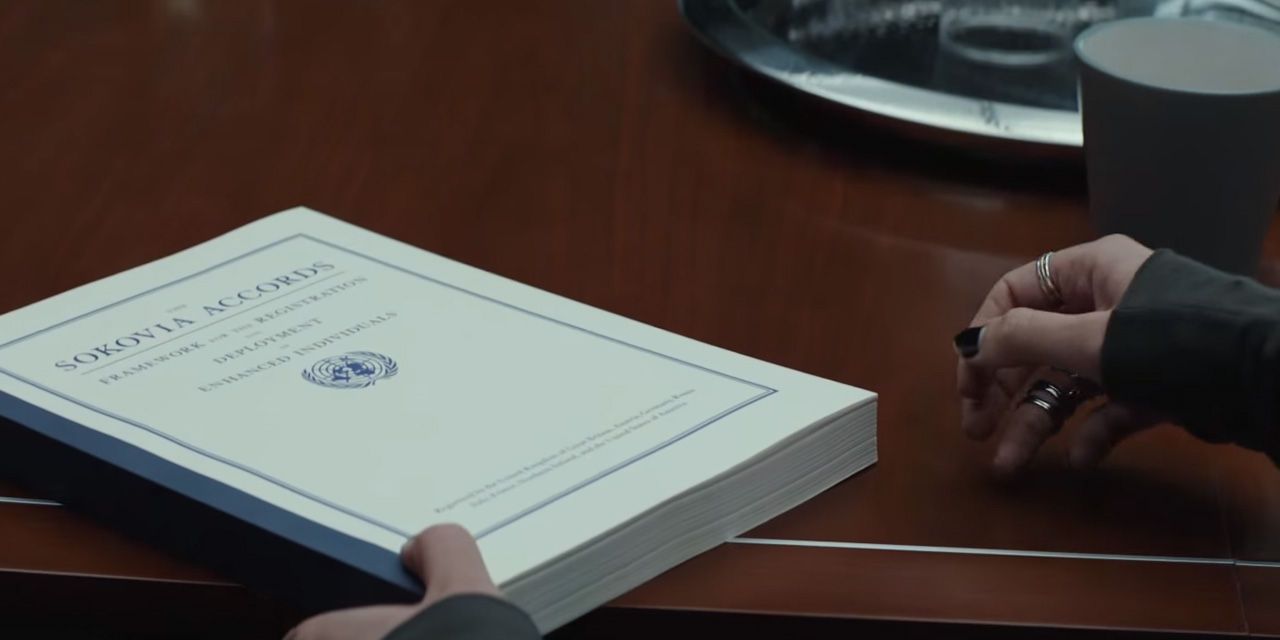There has never been a better time to be both a comic book and television fan. While superhero films have been an increasingly popular trend for more than a decade, comic book adaptations on TV didn't really begin their resurgence until 2012, with the premiere of The CW's Arrow. Not long after, in 2013, Marvel's cinematic universe expanded to include its first television series, Agents of S.H.I.E.L.D., and since then the genre has seen exponential growth on the small screen.
The CW's Arrowverse has grown to include The Flash, Legends of Tomorrow, and Supergirl, but the other comic book giant has not fallen behind. Marvel now has three highly acclaimed series on Netflix - Daredevil, Jessica Jones, and Luke Cage - with The Punisher, Iron Fist, and The Defenders soon getting ready to join the fray. While spinoff shows are nothing new, this is the first time that we've seen two concurrent efforts to maintain a shared superhero universe across multiple shows. It's a new frontier for TV and a serious challenge, but one that Marvel currently seems to have a better mastery of.
While DC's Arrowverse is an impressive cohesive universe, and makes for highly entertaining television, the four series don't quite stack up to what Marvel has accomplished. Netflix's binge friendly platform provides for a viewing experience akin to a 13 hour movie. Each episode builds to the next leaving little room for one-off installments and villains of the week - both of which are prominent on The CW. This is what causes many viewers to bunker down for a full weekend so they can finish each series as quickly as possible.
Agents of S.H.I.E.L.D. has done something very similar. Unfortunately, you cannot binge S.H.I.E.L.D. straight through without waiting for the season to be released on Netflix. And since it is understandably difficult to be so patient, it may come as a surprise how well such an endeavor would work. Marvel missed an opportunity when they launched Agents of S.H.I.E.L.D. in 2013. Goodwill from The Avengers was through the roof, and so, when the MCU's first television series premiered, it was not shocking that the audience was huge. But as each week passed the ratings dwindled, as the mystery of Coulson's return - which might have been much more compelling if revealed over the course of a weekend Netflix binge - was dragged out over many frustrating months.
Another explanation for the shrinking audience was the perception that S.H.I.E.L.D. was following too much of a procedural format - that being, villains or missions of the week. But it was eventually revealed that much of what the S.H.I.E.L.D. agents faced was a result of the behind the scenes workings of the Clairvoyant. Unfortunately, by the time this revelation occurred viewership had already faded to less than half of the pilot's 12 million viewers. As such, when the events of Captain America: The Winter Soldier came to pass - that Hydra was alive and well within S.H.I.E.L.D. - an unfortunate few got to experience the narrative Marvel was planning all along. And the fans that left the show behind have been missing out.
Since the events of Winter Soldier, Agents of S.H.I.E.L.D. has essentially operated as if being comprised of two-part seasons that bleed into one another. For instance, season two was broken into S.H.I.E.L.D.'s battle with Hydra, and then the emergence of the Inhumans. Season three kept the focus on the Inhuman/Hydra relationship, before moving to Hive's devastating plan for humans. Thus far, season four has followed S.H.I.E.L.D.'s journey back to legitimacy, while also highlighting the tension caused by the existence of Inhumans, and the relationship between Ghost Rider and those tinkering with the mysterious Darkhold. Each episode leads immediately into the next not unlike Daredevil, Jessica Jones, and Luke Cage.
The DC television viewing experience just is not comparable. It often seems as if the Arrowverse series are plagued by their long season orders. This leads to distracting one-off episodes that, at most, further the main plot of the season in ancillary ways. This is most apparent in Legends of Tomorrow, as the Legends often, quite conveniently, find themselves on a detour from their main objective. Let's face it, the Waverider continues to crash into different time periods as a means to tell a new unrelated story.
For example, last week's 'Shogun' did nothing to further the Legends goal of capturing Eobard Thawne, who so far seems like the main facilitator of what will be the Legion of Doom's plan. Rather, the team found themselves in 17th century Japan to save Nate and Ray. Sure, certain plots were advanced, such as Sara Lance's growth as team leader and the mystery that is Rip Hunter's whereabouts, but it is hard to knock the feeling that we are just being dragged along until the real drama can begin. Legends of Tomorrow continued with another one-off episode this week, sending the Legends to 19th century Mississippi. While the episode was actually a strong installment - including an inspired performance by Franz Drameh - again, it felt like stop gap until next week brings back Thawne and Darhk.
It is not just Legends of Tomorrow; The Flash and Arrow have struggled in similar ways. That being said, The Flash has been an extremely enjoyable series that also features rather strong main antagonists. Unfortunately, they are often relegated to the background until later in their respective seasons. In the meantime, Team Flash fights their metahuman of the week until Reverse-Flash, Zoom, or Alchemy make their ultimate goal known.
To be fair, Zoom and Reverse-Flash's presence were for the most part always felt, but so was their absence - and Alchemy has not been present in two weeks. It seems The CW's crop of series would benefit from several smaller story arcs that bleed into subsequent episodes. Perhaps Barry Allen has to deal with Mirror Master's plan over the course of three episodes, rather than one. Alchemy could remain the season's primary villain, but each episode would feel like it was more part of a larger story, with less plot lines so neatly resolved.
As for Arrow, the series has certainly had its struggles the last two years. Much like the first two seasons of The Flash, Arrow was a strong show featuring compelling main villains - Malcolm Merlyn and Deathstroke - but they were still often lurking in the shadows until later in the season. Arrow lost its way in season three, and even more so last season. Damien Darhk thrust the series into an exploration of magic that never made much sense. The series looks to be correcting course this season, though it is too early to tell whether that will be successful.
So far the season's main antagonist, Prometheus, has not had his presence felt much - that will change next week - but it should be noted, however, that Arrow has done a better job this year with the inclusion of Tobias Church. Church, who has been Star City's primary villain in four of the first five episodes ('A Matter of Trust' took a detour with the "Stardust" dealer) has been a major part of Arrow's fifth season redemption. And his inclusion has created the feeling that each episode has thus far been a part of a larger narrative - that being Tobias Church's rise to power in Star City's underworld. Hopefully, with the attention now being turned towards Prometheus, Arrow will continue to build on this season's positive strides. However, if past seasons are any indication, Prometheus will step out of the limelight towards the middle of the season, only to reappear with several episodes remaining.
But Marvel TV is not only outshining DC through effective serialized storytelling. While it is, of course, difficult to compare The CW's DC lineup to Marvel's on Netflix (it's kind of like comparing Dexter to Law & Order), it cannot be ignored that the streaming service allows for dark and gritty themes that would feel out of place in the Arrowverse. As such, Daredevil has explored the effects of corruption and revenge, while Jessica Jones has delved into psychological trauma, and Luke Cage into socioeconomic themes and the importance of community. Take the powers and masks away from these shows and you still have compelling stories related to the justice system, psyche, and responsibility. Remove those same things from DC's television series, and you are left with much less.
And while Marvel's Netflix series might be the company's most acclaimed and watched (difficult to know for sure, since Netflix doesn't disclose ratings), flagship show Agents of S.H.I.E.L.D. also continues to push the envelope, and could even be considered the heart of the vast Marvel Cinematic Universe. While the fourth seasons' 10 PM time slot clearly allows for more narrative flexibility, S.H.I.E.L.D. has always explored thought provoking themes such as: persecution, death, and vengeance. This has never been more evident than with the current season, as Inhumans remain polarizing figures, prompting divisive rhetoric from politicians, government organizations, and homeland terrorist groups within the Marvel universe.
This is not to say that DC's array of television properties do not feature a fair share of strong narrative themes. However, they are often lost in, or overshadowed by, the soapy nature of The CW, which calls for a prominence of romantic sub-plots and lighthearted fare. DC's TV series would benefit from spending more time highlighting some of the internal (and external) struggles faced by its characters. Flashpoint presented a rather good opportunity to do so - especially when it came to the relationship between Cisco and Barry. Unfortunately (from a narrative standpoint), that conflict concluded itself pretty quickly, repairing the team dynamic too easily.
There is another reason why DC simply cannot compete with Marvel TV. That is, that Marvel's television series add to the viewing experience of the films that make up the MCU. There are benefits to separating film and TV as DC has - removing narrative restriction, for a start - but it has resulted in an enormous missed opportunity. While Marvel fans do not have to watch the television series to enjoy the films or visa versa, the experience is enhanced when both the shows and movies are viewed in their entirety.
Even small nods to the films, like "The Incident" in the Netflix series or the fact that Nick Fury's Hellcarrier in Age of Ultron came from Coulson, reinforce the notion that everything is connected. The larger elements, like Hydra's reveal in Winter Soldier and the Sokovia Accords in Civil War, significantly impact Agents of S.H.I.E.L.D., very much highlighting the series' place in the MCU. The Sokovia Accords, in fact, uniquely impact the characters on Agents of S.H.I.E.L.D., with Inhumans' registered status leading to them being hunted down by the Watchdogs. Given how much fun it is to look for connections between the movies and the TV shows, it's disappointing to see the growing rift between the movie and TV branches of Marvel Entertainment.
Ultimately, whether DC TV or Marvel is outshining the other is a matter of opinion. While the two companies' audiences do overlap, there are those that only watch DC shows and others only Marvel, as well as people who are happily watching shows from both universes. But Marvel does appear to be hitting its stride, while DC has had to reboot (to an extent) their series - Arrow is going back to its roots, while Legends of Tomorrow tries to improve upon its lackluster first season, and Supergirl navigates the move to a new network. With Marvel, it seems that what started in 2013 with Agents of S.H.I.E.L.D. was always meant to lead to where we are now.
Who do you think is winning the battle for TV superhero superiority right now? DC or Marvel? Let us know in the comments!

